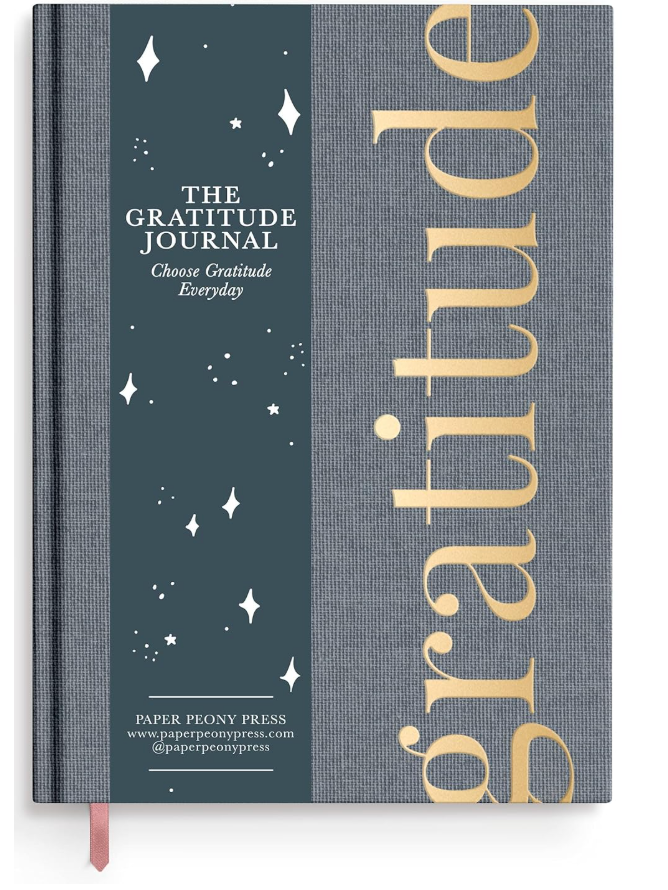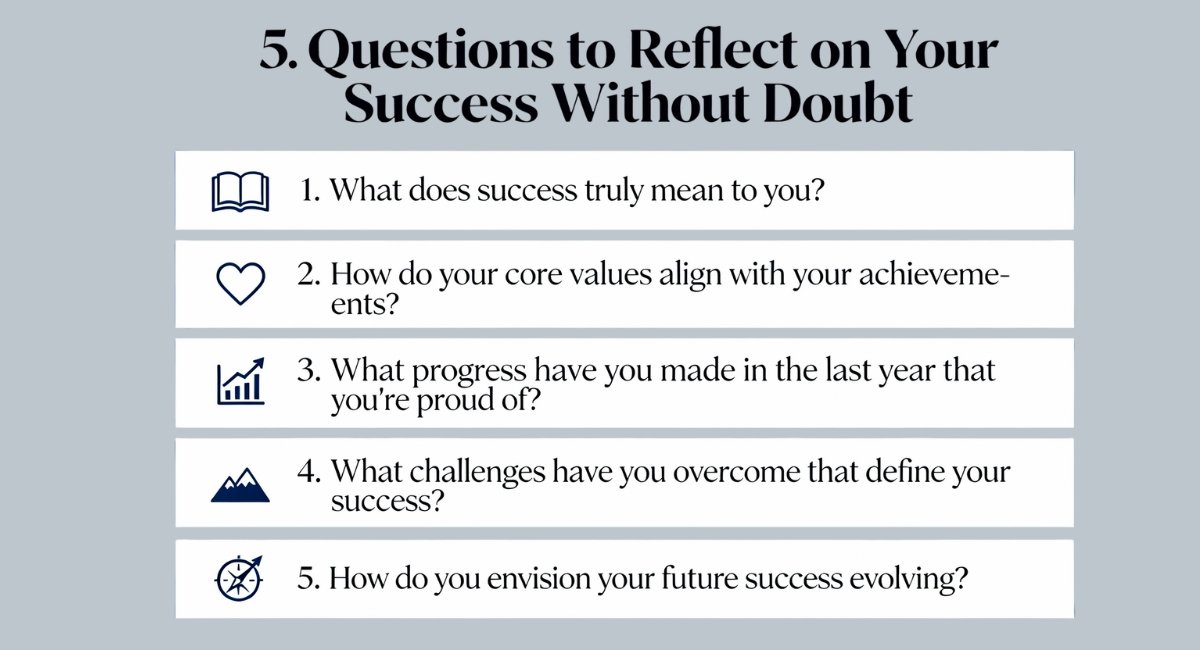How a 30-Day Gratitude Journal Changed My Perspective
This post contains paid and/or affiliate links. I make a small commission at no extra cost to you. Please see our Privacy Policy.
Keeping a gratitude journal can change your life. For thirty days, I wrote down what I was thankful for every day. It completely changed how I see things.
The Initial Hesitation
Starting a gratitude journal seemed hard. I worried if I could really find things to be thankful for every day. But, I knew it could make me happier, thanks to studies.
Setting Up My Journal
I picked a simple notebook and colorful pens. I also found a quiet spot to write without distractions. I decided to write down:
- Date: To keep track of what I noted each day.
- Daily Grateful Moments: Three things I was grateful for.
- Reflection: A few sentences on why I chose those moments.
Week One: The Early Gains
At first, my entries felt forced. I wrote about simple things like coffee, a smile from a stranger, or a warm meal. But, as time went on, I saw how these small joys made my life richer.
Week Two: Deepening the Practice
As the days went by, my view changed. I started writing about personal moments, like time with loved ones or work achievements. I learned to see challenges as opportunities for growth.
- Finding silver linings in stressful situations.
- Recognizing the importance of personal growth.
- Celebrating the support of friends and family.

Week Three: A Greater Awareness
By the third week, writing in my journal was a daily habit. I looked forward to sharing my day’s highlights. This period brought:
- Mindfulness: Being present and aware of positive moments.
- Connection: Feeling more connected to those around me.
- Optimism: Cultivating a more positive mindset.
The Final Days: Reflection and Growth
As I finished my journal, I looked back on my journey. I learned how gratitude heals and grows us. It taught me to appreciate more in my daily life.
The Lasting Impact
Finishing the 30-day challenge changed me for the better. Here’s what changed:
| Aspect | Before Gratitude Journal | After Gratitude Journal |
|---|---|---|
| Mood | Frequently negative | Consistently positive |
| Stress Management | Overwhelmed | More resilient |
| Relationships | Superficial | Deeper connections |
Keeping a gratitude journal changed my life. I continue to reflect on my experiences. If you’re thinking about starting a journal, do it. It might just change you too.
Practical Tips for Starting Your Own Gratitude Journal
Starting a gratitude journal can be life-changing. It’s a simple yet powerful way to focus on the good in your life. Here are some tips to help you start.
Choose the Right Journal
Finding a journal that feels right is key. It should motivate you to write every day. Here are some options:
- Blank Notebook: A simple, lined or unlined notebook gives you freedom to write as you like.
- Guided Journal: Journals with prompts can spark your creativity.
- Digital Journal: Apps like Day One or Journey let you write on your phone.
Set a Daily Reminder
Adding gratitude journaling to your daily routine can be tough. Here are ways to remember:
- Morning Routine: Write three things you’re thankful for at the start of your day.
- Evening Wind Down: Reflect on your day and note what made you smile.
- Use Technology: Set reminders on your phone or calendar to stay on track.
Keep It Simple
Your gratitude journal should be easy. Here’s how to keep it simple:
- Limit Your Entries: Start with one to three things you’re grateful for each day. It can be something simple like a sunny day or a warm cup of coffee.
- Use Bullet Points: If you’re stuck, a bullet point list can help.
- Short Sentences: Write short sentences. A couple of sentences per entry is enough.
Be Specific
Instead of saying “I’m grateful for my family,” be specific. For example, “I’m grateful for my sister’s supportive text this morning.” This makes your gratitude clearer and more impactful.
The simple act of writing what I was thankful for rewired my mind to seek the positive, even on the hardest days.
Include a Variety of Entries
Vary what you write about to keep it interesting:
- People: Write about friends, family, or even strangers who made a difference in your day.
- Experiences: Reflect on positive experiences, no matter how small.
- Lessons Learned: Sometimes, setbacks can lead to growth and gratitude for the lessons learned.
Reflect on Your Entries
Take time each week or month to reflect on your journal. Reading past entries can boost your mood and remind you of all the positivity in your life. Here’s how to do it:
- Set Aside Time: Dedicate a specific time each week to read through your past entries.
- Highlight Favorites: Use a different color pen to highlight entries that stand out to you.
- Share Your Favorites: Discuss your favorite entries with friends or family to deepen your connection with them.
Accept Imperfection
Your gratitude journaling journey doesn’t have to be perfect. Some days might be more challenging than others. Here’s how to embrace imperfection:
- Skip a Day: If you miss a day, don’t stress. Just pick up where you left off.
- Mix Up the Format: One day you might write a poem, while another day a simple list may suffice.
- Be Kind to Yourself: Remember that this is a personal journey, and it’s okay to have ups and downs.
Starting your own gratitude journal can drastically improve your outlook on life. By following these practical tips and incorporating a few strategies, you can make this practice an enjoyable and meaningful part of your day. Embrace the journey and enjoy the positive changes that come your way!

The Psychological Benefits of Practicing Gratitude Daily
Practicing gratitude daily can transform your life in remarkable ways. It has the power to shift your mindset and improve your mental health. Here are several psychological benefits that come from making gratitude a regular part of your routine.
Enhances Mental Well-Being
When you acknowledge what you are grateful for, you start focusing on the positive aspects of your life. This simple act can lead to:
- Improved Mood: Regular gratitude can lift your spirits, making you feel happier overall.
- Increased Positivity: Gratitude encourages a more positive outlook, helping you see the silver lining in difficult situations.
- Reduced Anxiety: Focusing on positive experiences can combat anxious thoughts and feelings.
Strengthens Resilience
Gratitude helps build resilience when challenges come. By focusing on the good, you learn to handle stress better. This resilience shows in many ways:
- Better Coping Skills: You get better at solving problems with gratitude.
- Less Risk of Depression: Studies show gratitude lowers depressive symptoms.
Improves Relationships
Gratitude makes connections stronger. Expressing thanks to people can deepen bonds and create a supportive environment. Here’s how it helps:
- Encourages Kindness: Gratitude makes you more likely to help others.
- Increases Relationship Satisfaction: Grateful couples are happier in their relationships.
Boosts Self-Esteem
Gratitude boosts self-esteem. It helps you appreciate what you have instead of what you lack. This focus can lead to:
- Greater Self-Confidence: Knowing your strengths boosts your self-worth.
- Less Social Comparison: Being grateful for your life reduces negative comparisons.
Encourages Mindfulness
Daily gratitude promotes mindfulness. It makes you present and appreciate small joys. Mindfulness benefits include:
- Lower Stress Levels: Mindfulness reduces stress hormones, making you feel calmer.
- Improved Focus: Gratitude improves your ability to stay in the moment.
Promotes Better Sleep
Gratitude also improves sleep. Reflecting on daily positives can calm your mind and improve sleep. To enhance sleep, try:
- Three Good Things: Write down three positive experiences before bed.
- Appreciation Journals: Record what you’re thankful for each day.
Reduces Physical Symptoms
Gratitude daily can also improve physical health. People who express gratitude often have fewer health issues. Benefits include:
- Boosted Immune System: A positive mindset strengthens your immune system.
- Healthier Lifestyle Choices: Gratitude leads to better exercise and diet habits.
Adding gratitude to your daily routine offers significant benefits. It improves mental health, relationships, and self-esteem. Focusing on gratitude can make your life more fulfilling and happy.

How Gratitude Journaling Enhances Personal Relationships
Gratitude journaling does more than list things you’re thankful for. It can greatly improve personal relationships. By acknowledging the good in your life and relationships, you strengthen emotional bonds. This practice helps you appreciate loved ones more and changes how you interact with them.
One key benefit of gratitude journaling is focusing on the positives in relationships. Writing down what you appreciate about others shifts your mindset. This shift can make your interactions more optimistic, improving communication and connection.
Here are some ways gratitude journaling can strengthen personal relationships:
- Improves Communication: Writing down what you are thankful for can make you feel more open and willing to express your feelings to others. When you acknowledge the good aspects of your relationships, you may feel inspired to share your thoughts verbally, creating a deeper bond.
- Reduces Negativity: Keeping a gratitude journal can help you stay focused on the positives, which can reduce negative thoughts and feelings about people close to you. This change in perspective encourages more supportive and loving interactions.
- Encourages Empathy: Reflecting on your relationships highlights the efforts others make for you. This can spark empathy and a greater understanding of their feelings. As you recognize their contributions, your connection becomes more profound.
- Strengthens Bonds: Being grateful fosters a culture of appreciation. When you express gratitude towards your friends and family, they feel valued and seen, which can strengthen your bond immeasurably.
- Models Positive Behavior: As you embrace gratitude, you naturally encourage others to do the same. Your positive behavior can inspire loved ones to express their gratitude, creating a ripple effect of appreciation in your social circle.
A 30-day journey of gratitude transformed my perspective, teaching me that life’s true treasures are often hidden in plain sight.
To get started with gratitude journaling that focuses on personal relationships, try these steps:
- Set aside time daily: Allocate a few minutes each day to reflect on your relationships. This dedicated time will help you form a lasting habit.
- Be specific: Instead of generalizing your appreciation, describe specific actions or qualities that you are grateful for. This intentionality adds depth to the journaling experience.
- Express it: Don’t just renew appreciation in your journal; let your loved ones know what you value about them. A simple text or note can go a long way in reinforcing your bond.
- Review regularly: Look back at your entries to remind yourself of the positive attributes of your relationships. This review can reignite your appreciation during tougher times.
Gratitude journaling also helps with emotional regulation. When conflicts arise, focusing on the reasons you value a person can help manage your emotions. This makes it easier to navigate disagreements without escalating tensions.
Keeping a gratitude journal also helps solidify your sense of identity. As you explore and reflect on your relationships, you may uncover values and traits that resonate deeply with you.
Understanding who you are strengthens your capacity to connect with others authentically and allows you to engage in relationships that feel fulfilling.
As you continue, you’ll see that gratitude journaling does more than just foster appreciation. It creates a profound change in how you navigate personal relationships.
By regularly reflecting on your bonds and sharing that gratitude, you pave the way for deeper connections, improved communication, and an overall enhancement in interpersonal dynamics.
The positive impact on your emotional well-being will ripple through every aspect of your life, leading to lasting fulfillment.

Overcoming Challenges: Sticking to Your Gratitude Journaling Habit
Many of us recognize the incredible benefits of keeping a gratitude journal. Writing down what we are thankful for can shift our mood, promote positivity, and help us focus on the good things in life.
Yet, consistently sticking to your gratitude journaling habit can be challenging. Here are effective strategies to help you overcome those obstacles and embrace your journaling practice.
Set Realistic Goals
Establishing realistic goals for your gratitude journal is key. Instead of aiming for lengthy entries every day, start small. Consider these achievable goals:
- Write down three things you are grateful for each day.
- Limit your journaling time to just five minutes.
- Choose specific days of the week to write instead of daily.
By setting manageable targets, you are less likely to feel overwhelmed. It can also make you more focused and intentional about your entries.
Create a Dedicated Time and Space
Establishing a specific time and place for your gratitude journaling can help make it a habit. Consider the following:
- Morning Routine: Begin your day by writing in your journal. This can set a positive tone for the day.
- Evening Reflection: Use journaling as a way to unwind and reflect on your day before bed.
- Comfortable Setting: Choose a cozy corner in your home where you feel relaxed and inspired.
Creating a routine around your journaling practice helps reinforce the habit in your daily schedule.
Use Prompts to Inspire You
Starting with a blank page can feel overwhelming. Using prompts can help spark ideas and keep you writing regularly. Here are some prompts to help you get started:
- What made you smile today?
- Who is someone you are grateful to have in your life?
- What is a lesson you’ve learned this week?
Having these prompts ready can make it easier to write down your thoughts and feelings.
Keep Your Journal Accessible
It’s important to keep your gratitude journal where you can easily find it. Here are some tips:
- Keep your journal on your bedside table or desk.
- Carry a small notebook in your bag or backpack.
- Use a journaling app on your smartphone for convenience.
The more accessible your journal is, the more likely you are to use it.
Embrace Imperfection
It’s okay if your journal isn’t perfect. Remember, it’s about the habit of gratitude, not the quality of your entries. Accepting this can help you stay consistent without feeling guilty.
Celebrate Your Progress
Recognize how far you’ve come in your gratitude journaling. You can track your progress in many ways:
- Set monthly check-ins to review your entries.
- Share your gratitude moments with friends or family.
- Reward yourself for sticking to your journaling practice for a certain number of days.
Celebrating your progress can motivate you to keep going.
Connect with Others
Being part of a community that practices gratitude journaling can be very helpful. You might consider:
- Engaging in online forums or social media groups dedicated to gratitude.
- Participating in workshops that focus on gratitude practices.
- Buddy up with a friend to share your insights and encourage each other through the process.
Connecting with others can make the experience more enjoyable and help you stay accountable.
Keeping up with gratitude journaling can be challenging, but with the right strategies, it can be rewarding.
By setting realistic goals, creating dedicated times, using prompts, keeping your journal accessible, embracing imperfection, celebrating progress, and connecting with a community, you can enjoy the many benefits of gratitude journaling.
Conclusion
Starting a 30-day gratitude journal can change your life. It changes how you see things and how you interact with others. By writing down what you’re thankful for each day, you build emotional strength.
It’s easy to start a gratitude journal. You can use a notebook or an app. Just make sure to write every day. Soon, it will become a special part of your day.
Practicing gratitude daily can make your relationships better. When you share what you’re thankful for, you connect deeper with people. This creates a positive circle of appreciation.
It’s okay if you miss a day sometimes. Growing means facing challenges. Stay motivated by setting achievable goals and being kind to yourself.
Starting your gratitude journal can change your life and your relationships. It leads to a happier, more fulfilling existence. Begin today and let gratitude lead the way.




